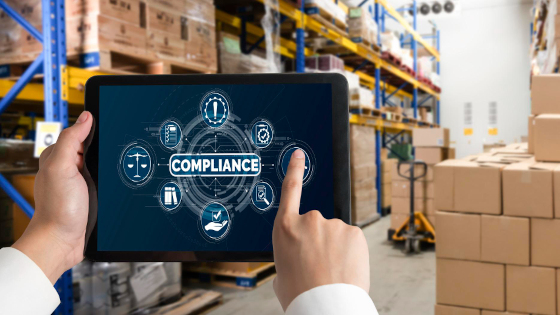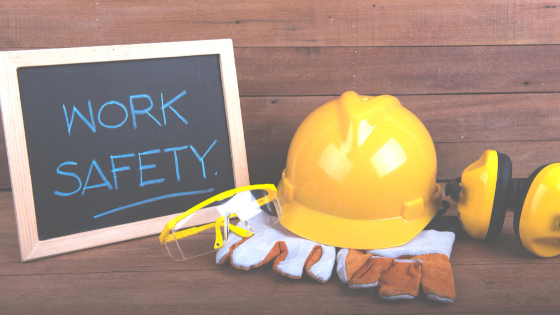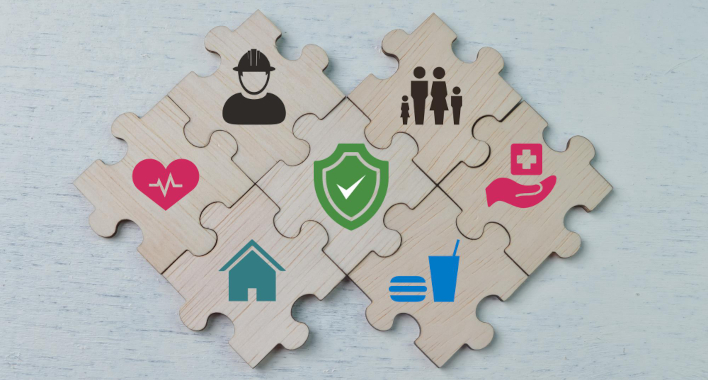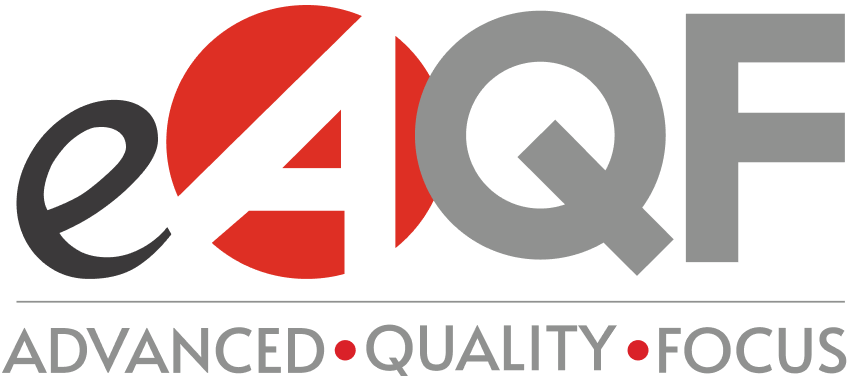Quick Links
Related Topics
Ethical Supplier Practices: What Is a Social Compliance Audit?
We live in a time where transparency and social responsibility are no longer optional but expected. As a result, online sellers are finding themselves at a crossroads. With over 1.7 million small to medium business owners contributing to 60% of Amazon's retail sales , the stakes have never been higher for these digital entrepreneurs.
Yet, many remain unaware of the critical role that ethical supplier practices play in safeguarding their reputation and ensuring long-term success.
As consumers increasingly demand accountability in the supply chain, online sellers must rise to the occasion. This article will shed light on the essential nature of social compliance in today's market.
Ready to get started? Continue reading below.
The Basics of Social Compliance in the Supply Chain
Your brand's reputation extends far beyond the products you sell. Consumers are increasingly making purchasing decisions based on the social and environmental footprint of their consumption.
Consumers expect businesses to perform due diligence in the ethical practices of their supply chain. Social compliance ensures that your operations align with the customer's values.
As global awareness of social issues grows, so does the complexity of regulations surrounding ethical business operations. Social compliance helps you navigate this evolving regulatory landscape, ensuring that your business meets the standards.
Failing to comply with these standards can lead to lawsuits and heavy fines. However, it is important to note that avoiding legal fees should not be the main influencer in social responsibility.
Imagine your supplier is forcing their workers to work excessive hours a day and you have no idea about it. One day a report releases this situation and the public is accusing you of unethical sourcing practices. Customers no longer trust your brand and your brand image is under shadow.
You wish you had done something to identify such a problem earlier. That’s where a social compliance comes in. This audit elevates your business in the eyes of informed, ethical, and internet-savvy consumers. It also positions you as a leader in a marketplace that increasingly values transparency and ethical behavior.
Adapting to this demand by prioritizing social compliance prepares your business for a future where these principles are paramount.

What Is a Social Compliance Audit?
A social compliance audit is a comprehensive assessment of a company's operations and its supply chain to verify adherence to:
- Local and international labor laws
- Ethical standards
- Environmental sustainability
This type of audit is to check that businesses meet statutory requirements. However, it does much more than that. It also checks whether your operational practices align with a broader social responsibility towards workers and the community.
Audits are conducted based on SA 8000 standards specializing in assessing social compliance, providing an objective and impartial analysis of a company's adherence to ethical standards. The findings from these audits can help businesses identify areas where they fall short and implement corrective actions.
For online sellers, undergoing a social compliance audit can illuminate the ethical practices (or lack thereof) within their supply chain. It can provide insights into areas of improvement and showcase their commitment to ethical practices to consumers and stakeholders.
While it may seem daunting to have an external auditor check your operations, it can significantly improve your social footprint and compliance posture.

What Is the SA 8000 Standard?
The SA 8000 Standard is a voluntary, international standard developed by Social Accountability International (SAI) for improving workplaces and ensuring social compliance.
It is regarded as one of the world's preeminent social certification programs for factories and organizations across various industries. SA 8000 is based on the principles of international human rights norms as described in:
- International Labor Organization conventions
- The United Nations Convention on the Rights of the Child
- The Universal Declaration of Human Rights
Key Checkpoints of Social Compliance Audit
A social compliance audit is a comprehensive evaluation that focuses on various key checkpoints that are fundamental to maintaining social compliance.
Each of these areas plays a critical role in safeguarding the rights and well-being of workers, while also reflecting a company's commitment to ethical business practices.
Let's delve into these key checkpoints of a social compliance audit.
Child Labor
Child labor is strictly scrutinized in social compliance audits. Auditors verify that all labor laws relating to the minimum age for employment are respected and that the business does not exploit children.
Forced or Compulsory Labor
This aspect of the audit ensures there is no use of forced or compulsory labor in any form, including:
- Bonded labor
- Human trafficking
- Labor coercion
Auditors assess the freedom of movement of the workforce and the presence of any work performed under threat of penalty or without consent.
Health and Safety
Health and safety checkpoints focus on the work environment, ensuring it is safe and healthy for employees. This includes:
- Assessing the adequacy of safety equipment
- The presence of emergency procedures
- The overall conditions of the workplace
Ensuring a safe working environment is pivotal to protecting employees from accidents and occupational diseases.

Freedom of Association
Freedom of association ensures workers have the right to form and join trade unions and engage in collective bargaining. Auditors check for policies and practices that respect employees' rights to organize and negotiate their working conditions freely and without fear of retaliation.
Discrimination
Discrimination reviews review policies and practices for fairness in:
- Hiring
- Remuneration
- Training
- Promotion
- Termination
They ensure that no worker is discriminated against based on:
- Race
- Color
- Gender
- Sexual orientation
- Religion
- Political opinion
- Nationality
- Social origin
- Any other status
Disciplinary Practices
This checkpoint verifies that disciplinary practices within the company are fair and respectful. There should be no use of corporal punishment, mental or physical coercion, or verbal abuse.
Working Hours
Working hours are examined to ensure compliance with national laws and international labor standards. This includes assessments of regular working hours, overtime, breaks, and days off.
Remuneration
Remuneration checks ensure that all workers receive fair wages that meet or exceed the legal minimum. They should also be sufficient to provide a decent standard of living.
Management System
The management system checkpoint assesses the effectiveness of the organization's policies in upholding social compliance standards. This includes evaluating how well the company identifies and mitigates risks.

Key Benefits of Social Compliance Audit
Conducting social compliance audits is a strategic investment for any business, enabling them to navigate the challenges of the modern marketplace with confidence. Social compliance audits offer a plethora of benefits that extend far beyond simple adherence to legal requirements
Ensure Regulation Compliance
One of the primary advantages of a social compliance audit is its role in ensuring that a business complies with all relevant local and international regulations regarding:
- Labor
- Safety
- Environmental standards
By identifying areas where a company may fall short of these regulations, the audit allows for corrective actions to be taken. This proactive approach safeguards the business against legal challenges and the costs involved with it.
Enhance Social Responsibility
Social compliance audits drive businesses to actively consider and improve their social impact. Companies can demonstrate their commitment to corporate social responsibility (CSR) and contribute to the development of the people involved with their organization.
However, while demonstrating this is crucial in a transparent and digital world, it should not be the driving factor. As business owners, we should adhere to the regulations, yes. More importantly, we should exceed the regulations by ushering in a new era where commitment to social responsibility is a given, not something that one can boast about.

Protect Brand Reputation
A brand's reputation can be its most valuable asset or its greatest vulnerability. While a business should aim to uphold the rights of each person involved in the supply chain, there are always cracks in the system unbeknownst to you.
Social compliance audits help protect a company's brand reputation by ensuring that its supply chain is free from unethical practices that could lead to negative publicity. Maintaining high standards of social compliance helps prevent scandals related to labor abuses or environmental harm, even if you were not aware of these issues.
With a social audit, businesses can safeguard and even enhance their reputation in the marketplace.
Increase Supply Chain Visibility and Accountability
Social compliance audits provide an in-depth look into the complexities of a company's supply chain. Through these audits, businesses can identify and address ethical vulnerabilities within their supply chains, from sourcing materials to manufacturing products.
This increased transparency allows companies to make informed decisions and hold suppliers accountable for their practices. Enhanced visibility and accountability in the supply chain improve operational efficiencies.

How Does a Social Compliance Audit Work
A social compliance audit is a structured process designed to evaluate a company's adherence to social and ethical standards within its operations and supply chain. This process uncovers areas needing improvement but also highlights strengths, paving the way for responsible business practices.
As we've mentioned, this type of scrutiny, while beneficial, can be daunting for a small business owner. Since we've discussed transparency throughout this article, it is only fair to discuss the process of a social compliance audit and what you can expect.
Remember, a social compliance audit is not just a pass or fail grade. Instead, it ought to be a thorough report that highlights areas for improvement so that each person involved in your business receives the respect they deserve.
Below is what you can expect during an audit.
Preparation & Opening Meeting
Preparation involves the auditor reviewing relevant company documents and policies related to social compliance. This phase is crucial for understanding the scope of the audit and setting clear objectives. Companies are expected to provide access to:
- Necessary documentation
- Employee records
- Facilities
The opening meeting marks the official start of the audit. Conducted with the company's management team, this meeting serves to:
It sets the tone for open communication and cooperation throughout the audit process.

On-Site Assessment
During the on-site assessment, auditors physically audit the company's facilities to observe working conditions and environmental practices firsthand. This stage allows auditors to gather tangible evidence of the company's compliance with social standards and regulations.
They may check for the presence of safety equipment and assess any potential risks to employee well-being.
Employee Documentation Review
The employee documentation review focuses on examining records to verify the company's compliance with labor laws and social standards. The goal is to ensure that the company maintains transparent and fair practices in managing its workforce.
Employee Interviews
Employee interviews are a critical component of the audit, providing insights into the actual working conditions and employee experiences that documents alone cannot reveal.
Conducted confidentially, these interviews allow employees to share their perspectives on their work environment and any concerns they might have. This direct feedback is invaluable for understanding the real impact of the company's policies and practices on its workforce.
Closing Meeting & Report Generation
The closing meeting concludes the on-site portion of the audit. The auditors discuss their initial findings with the company's management, highlighting areas of compliance as well as any concerns that require attention. This meeting provides an opportunity for immediate feedback and clarification of the next steps.
Report generation follows the closing meeting, where auditors compile their findings and recommendations into a comprehensive audit report. The report serves as a roadmap for the company to address any identified issues and enhance its social compliance practices.

Work With eAQF to Conduct a Social Compliance Audit
Partnering with eAQF for your social compliance audit unlocks a seamless, expert-driven journey toward ethical excellence in your supply chain.
As a digital-first platform under the prestigious umbrella of WORMS SAFETY, eAQF simplifies the complex process of ensuring social compliance. Our globally accredited network of experts specializes in meticulous audits across various industries.
Through our platform, you can effortlessly book audits and access detailed reports filled with actionable insights.
Navigating the World of Social Audits
Embracing social compliance is a strategic advantage that sets your business apart in the digital marketplace. Through a commitment to ethical practices, you build a foundation of trust with consumers and ensure sustainable growth.
Revolutionize your approach to social compliance with eAQF, where we transform the complexity of product quality and compliance into a streamlined, effortless process. Our globally accredited network of experts brings trusted, comprehensive audits to your doorstep, ensuring your business remains competitive and compliant.
Trust your compliance journey to eAQF, where we don't just meet expectations; we redefine them.






